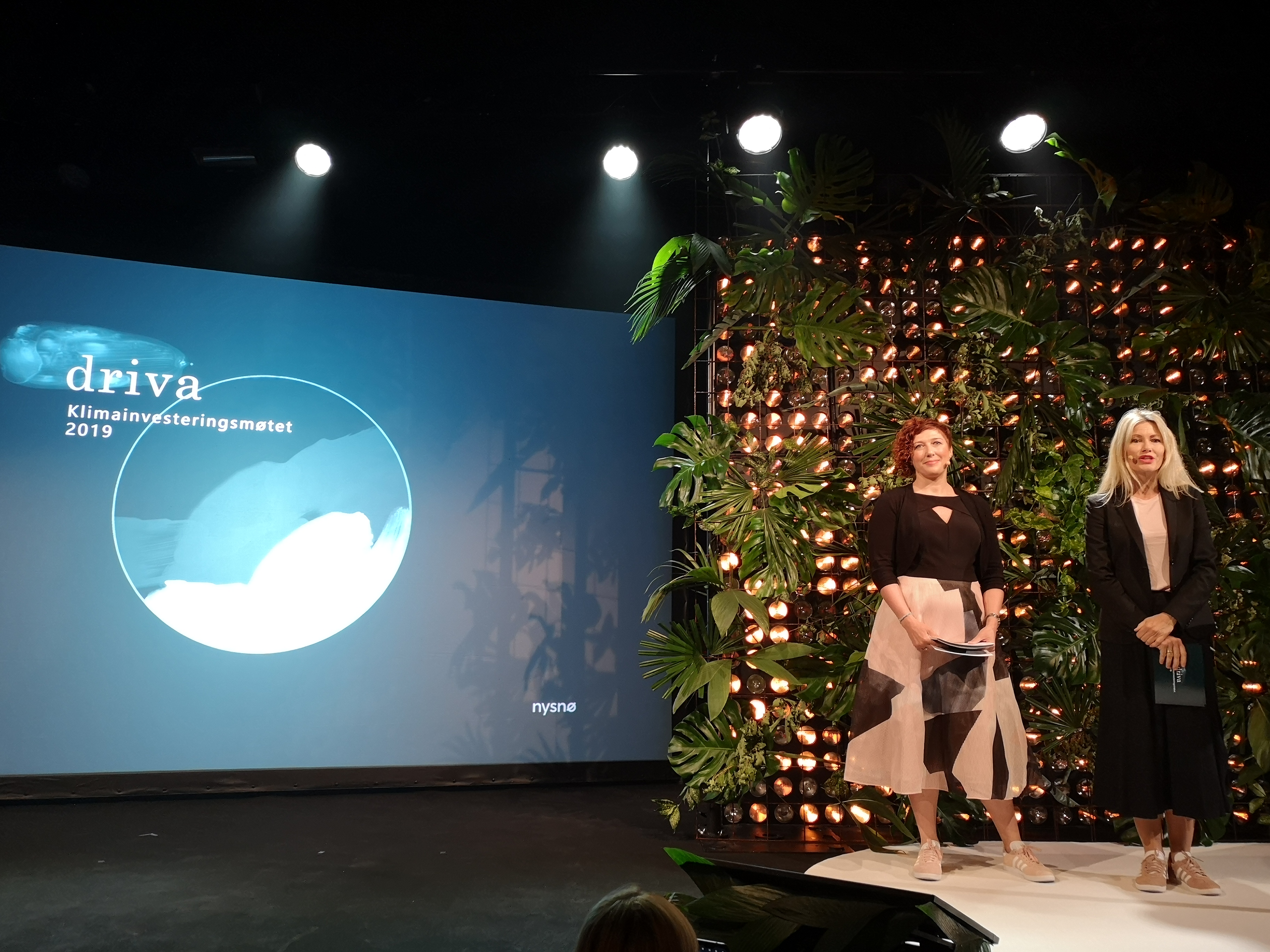The 2018 ‘Nobel prize in Economics’ was given to climate economists William D. Nordhaus and Paul Romer. Sometimes criticized by contemporary economists the Royal Swedish Academy of Sciences’ decision provided vindication for two researchers who for nearly 50 years have understood that our models for economic development have not properly accounted for the cost of pollution.
A very abridged version of their major contributions to climate economics (with apologies for simplification) is that Nordhaus argues for taking on the cost of investing in mitigation of negative climate impacts sooner rather than later, and that Romer argues for government investments in research and development to improve underlying performance.
At Driva Climate Investment 2019 in Stavanger the Norwegian fund for green investments, Nysnø, and guests will seek to answer both researchers visionary call to action. As the Norwegian government’s vehicle for investing in scaling private sector R&D for positive climate impact, the first presumably climate positive investments have already been made. Companies like Disruptive Technologies, eSmart Systems and Otovo are already well on their way to spending Nysnø’s investments for the greater good – with the added benefit of potentially attractive returns.
Climate investments are almost by definition more long term than most other investments. This is good not only for the environment, but also for R&D focusing companies who can get a longer time horizon to realise return on investment than the typical 4-5 year venture capital time horizon. This is why Sensonomic is participating at Norway’s first climate investment meetup. Currently deeply engaged in technology for agriculture, or Agritech, we see how closely related and overlapping climate and agribusiness investments can be:
- they are both, or at the very least should be, long term;
- they depend on visionary and patient investors;
- they require multifactor impact, not just a financial one, and
- they require management in their investments to spend on R&D.
In Norway and in Europe we have many vehicles for subsidising experimental and applied research in for-profit businesses, such as the Norwegian Research Council, Innovation Norway, and Horizon2020. All of these are very good for project funding, though to truly lift Norwegian climate focused companies to become a serious competitor on a global scale we need Norwegian money to go to Norway-based talent and companies. Nysnø and Driva is a great start, and we trust the fund will continue to grow into the future.
Disclosure: Nysnø’s CEO Siri M. Kalvig is an angel investor and a previous board member of Sensonomic.
Comments are closed.


Recent Comments